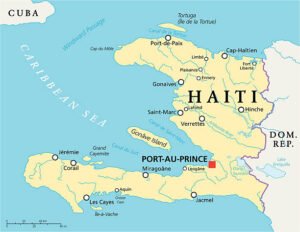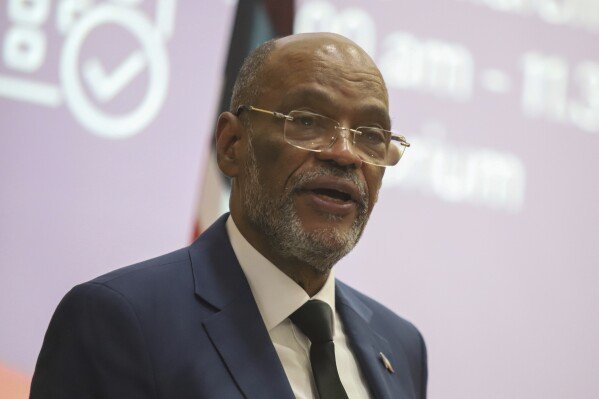ROME (AP) — The president of Haiti’s transitional presidential council, Leslie Voltaire, has warned that the Trump administration’s decisions to freeze aid programs, deport migrants, and block refugees will have “catastrophic” consequences for Haiti.
Speaking to The Associated Press in Rome on Saturday after a meeting with Pope Francis at the Vatican, Voltaire said he had sought the Pope’s help for his struggling nation.
“I’m reaching out to those who care about Haiti. The Pope loves Haiti and is eager to help,” Voltaire stated.
During their discussion, the Pope and Voltaire addressed Haiti’s worsening crisis, where gangs operate with impunity and civilians are regularly targeted. With half of Haiti’s 11.4 million people already facing hunger, Voltaire emphasized that the loss of U.S. humanitarian aid would significantly worsen the situation.
“Trump once called Haiti a ‘shithole,’ so I don’t think he cares,” Voltaire remarked, noting that thousands of Haitians are already being deported from the Dominican Republic each week. The new U.S. policies, he warned, will only deepen the crisis.
During his first term, President Trump used derogatory language to question why the U.S. should accept immigrants from Haiti and certain African nations. At the time, the White House did not deny the remarks but issued a statement affirming that Trump supports immigration policies benefiting the U.S.
Voltaire pointed out that approximately 1.5 million Haitians currently reside in the U.S., including 150,000 who were granted protection under the Temporary Protected Status (TPS) program.
“Trump says he will deport them all,” Voltaire said, adding that Haiti, already overwhelmed by hunger and displacement, cannot cope with such an influx.
According to a recent report by the U.N. migration agency, internal displacement in Haiti has tripled over the past year, now surpassing 1 million people due to escalating gang violence. The report highlights a near-collapse of healthcare, worsening food insecurity, and an increase in forced returns from the Dominican Republic, with over 200,000 Haitians repatriated in the past year.
Despite the dire situation, Voltaire remains optimistic about holding general elections by November. He acknowledged the challenge posed by gangs controlling 85% of the capital but believes elections are feasible with increased international support for Haiti’s police force.
Kenya is currently leading the multinational police force in Haiti, with 600 officers deployed—short of the 1,000 promised. Guatemala has contributed 150 officers, and El Salvador has sent an advance team of eight. However, the force remains far below the planned 2,500 personnel, though Benin has pledged to send an additional 2,000 troops.
Voltaire stressed the importance of constitutional reform alongside the elections, stating, “We need to hold a referendum on a new constitution and then proceed with the elections in November. I believe we can do it because we have control over 80% of the country outside the capital.”

The power of Haitian gangs has grown since the 2021 assassination of President Jovenel Moïse. Some gangs have even expressed interest in joining the political process, but Voltaire firmly rejected the idea. “I don’t think they should be part of the discussions. They are criminals,” he said.
According to the U.N., more than 5,600 people were killed in Haiti last year, a 20% increase from 2023. U.N. Secretary-General Antonio Guterres recently warned that without further international support, gangs could overrun the capital, leading to a complete collapse of government authority.
Voltaire revealed that he asked Pope Francis to organize an international solidarity conference for Haiti. He noted that the Pope wrote “international conference” on a piece of paper, and later, Vatican Secretary of State Pietro Parolin assured him that efforts would be made to persuade Mexico and Canada to help fund the initiative.

 English
English



























































